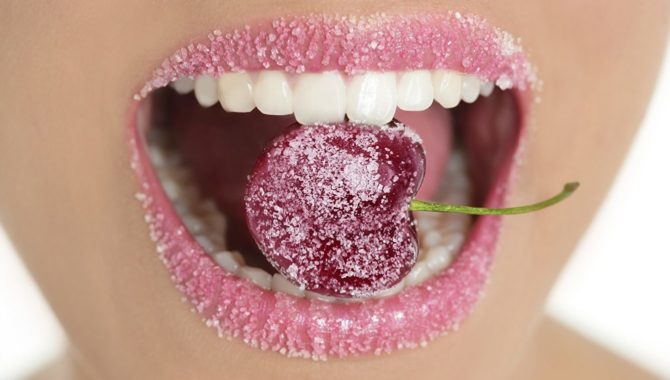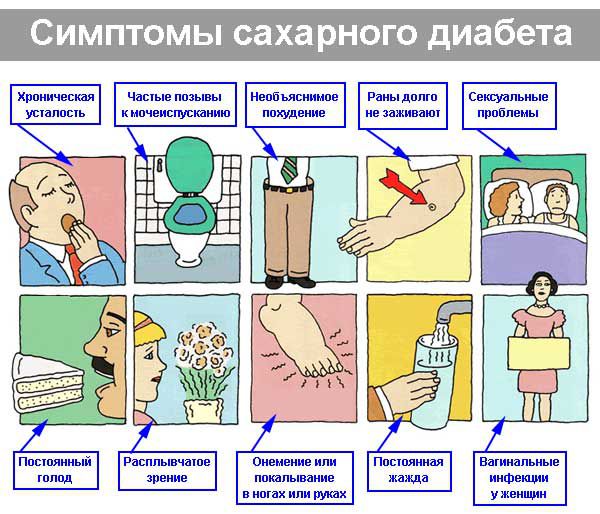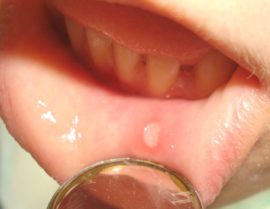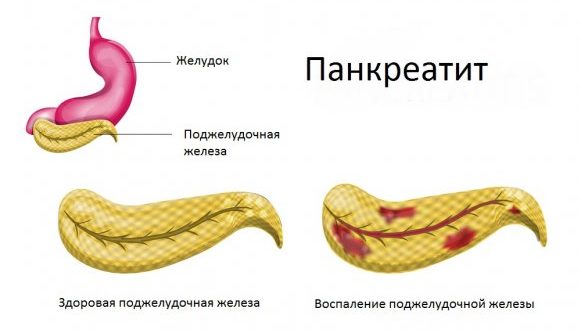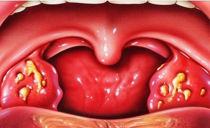Sweet taste in the mouth: causes, what treatment means
A change in taste perception is a sign that signals the possible development of various pathologies in the body. Among the most common discomforts include a sweet taste in the mouth, the causes of its occurrence in women, men, diagnostic methods and treatment regimens are discussed in detail in the material below.
Content
General description of the anomaly
The sensation of sweetness present in the oral cavity for a short time after eating desserts is a natural transient reaction of receptor zones that has no clinical significance. Only fantasia indicates the need to visit a doctor - the presence of the considered taste sensations in the absence of the influence of irritating substances on analyzers (cells, their microvilli).
The described pathology can be permanent (prolonged) and short-term. It is observed only in the morning or throughout the day, occurs in isolation or is accompanied by additional symptoms. Among the latter:
- bad breath;
- the appearance of dense deposits of gray on the tongue;
- heaviness, stomach discomfort.
Shades of abnormal taste sensations range from sweet and sour to sugary, milky and bittersweet.
Reasons why a sweet aftertaste appears in your mouth
The reasons for the appearance of a sweetish taste in the mouth in patients of different sexes, ages are almost identical. Conventionally, they can be differentiated into 5 groups. The first includes diseases that are localized in various organs and tissues. Among them:
- malfunctions of the gastrointestinal tract and thyroid gland;
- neurological disorders;
- diseases affecting the respiratory system;
- dental diseases.
In the second group of factors provoking the appearance in the mouth of a persistent sweetish aftertaste is an unbalanced diet, regular overeating.
Experts distinguish pregnant women into certain categories of patients, as well as people with bad habits who have received chemical poisoning of patients.
Disruption of the digestive tract
Digestive upset, gastritis, increased acidity of the stomach, ulcer, GERD, pancreatitis - diseases that are the most common causes of a sweet taste in the mouth.
The listed pathological conditions provoke the entry of the contents of the hollow muscle organ into the esophagus. Among the consequences of the anomalies are heartburn, headache, discomfort in the epigastrium, an unpleasant aftertaste in the oral cavity, increased saliva. Temporary relief comes after eating.
CNS disorder, chronic stress
Neurological disorders (especially ailments accompanied by innervation of the facial muscles), prolonged overstrain, lack of proper rest under excessive loads - these are conditions accompanied by a feeling of sweetness in the mouth due to the development of changes in the functioning of taste buds. Symptom is observed in combination with the main signs of disease - lack of appetite, headaches, depression, dizziness.
Endocrine diseases
Problems with the thyroid, pancreas are also accompanied by the appearance of a sweet taste. Discomfort is permanent and is caused by a violation of the process of penetration of glucose into vascular tissues, saliva.
Changes in taste perception may be a sign of diabetes. In diabetes mellitus, a change in taste sensations is accompanied by hyperhidrosis, thirst, mental lability, skin itching, a sharp decrease (increase) in body weight.
Respiratory infections
The natural work of receptors in infectious pathologies of tonsil lacunae, lungs, or sinuses is disrupted by the activity of colonies of microorganisms, as a result of which a purulent focus is formed. The most dangerous pathogen is Pseudomonas aeruginosa, causing bronchitis, pneumonia. The main signs of disease are:
- sore throat or chest;
- labored breathing;
- loss of appetite;
- a sharp increase in temperature;
- weakness;
- dry lips.
Inflammatory diseases localized in the upper respiratory tract often cause a sweet taste in the mouth and require treatment under the supervision of a doctor. Attempts to independently eliminate such ailments are fraught with the development of serious complications, up to a fatal outcome.
Diseases of the teeth, oral cavity
With lesions of the oral mucosa, stomatitis, caries and advanced forms of periodontal disease, the growth and development of colonies of infectious agents leads to the appearance of a sweet taste. Visiting the dentist, men and women talk about the feeling of the presence of powdered sugar in the sky (gums), complain of bleeding of soft tissues, pain in the affected area, radiating up, down, to the sides.
Attempts to self-relieve discomfort bring relief only for a short time. Dental diseases must be treated only by a specialist.
Additional circumstances
The cause of sweetness in the mouth may be:
- To give up smoking. Irritating substances have a stronger effect on regenerating receptors.
- Chemical poisoning. Pesticides, lead, phosgene affect taste buds, changing the principle of their work.
People who constantly consume junk food also often suffer from discomfort in the oral cavity. Doctors, responding to patients' questions about why a sweet, milky taste appears in the mouth, call the following reasons:
- Excessive amount of carbohydrates received (presence in the daily menu of meat, flour, sweet dishes, sweets).
- Binge eating.
- The presence in the history of diseases that cause metabolic disorders.
Causes of sweet mouthfeel in women
In pregnant women, mouth discomfort can occur due to the development of gestational diabetes. At risk:
- women over 35 years old;
- the fair sex, bearing a large fruit;
- patients suffering from pathological toxicosis, obesity, gastrointestinal diseases.
Pathology negatively affects the condition of the child, therefore, the detection of a sweet taste in the mouth in the morning or after eating signals the need for urgent treatment by a doctor (gynecologist).
What does a sweet taste in the mouth mean depending on the manifestation
Bad taste has various forms of manifestation. Depending on the “shade” of the sensation and the time of its occurrence, we can conclude that there are various diseases.
So, the sweet taste that appears in the mouth after waking up is a significant sign indicating the possible development of inflammation of the pancreas. With the progression of the disease, glucose breakdown stops, which leads to an increase in blood sugar.
Concomitant symptoms of pancreatic inflammation are nausea, bloating, gastrointestinal pain, radiating to the back. Pancreatitis is indicated by frequent burping, excessive salivation.The sensation of a sweet taste that appears in the mouth in the morning disappears after eating.
Sweet and sour taste is a sign of latent (asymptomatic) development of diabetes, the presence of a prediabetic state. Bittersweet - diseases of the biliary tract, liver damage.
Diagnostics
After detecting the symptom in question, it is recommended to consult a therapist or specialist specialists. Among them:
- nutritionist, gastroenterologist;
- Dentist, ENT;
- neurologist;
- endocrinologist.
The doctor will examine and interview the patient, identify a disease that could lead to the appearance of a persistent sweet taste in the mouth. To confirm a preliminary diagnosis, you may need the results of a blood test, urine, and other studies.
To complement the resulting clinical picture to find out why there are discomfort, instrumental diagnostic methods help - ultrasound of internal organs, FGS, radiography.
Treating a sweet aftertaste in the mouth
The treatment regimen is prescribed taking into account the general condition of the patient, the presence of chronic and concomitant diseases. After successful treatment of the underlying disease, the discomfort disappears.
To stop pathologies, antibiotics, anti-inflammatory drugs, antacids are used, depending on the type of disease. Using the recipes of alternative medicine will help to fix the achieved result. If the cause of the taste is in the dental disease, you need to undergo a course of treatment in dentistry.
Knowing why there is an unpleasant aftertaste, you can successfully stop its occurrence by regularly undergoing medical examination, nutrition correction, compliance with the operating and resting modes.
If the symptom could not be avoided, you should immediately contact the clinic - a favorable outcome of any internal diseases is possible only if you receive quality and timely therapy.

